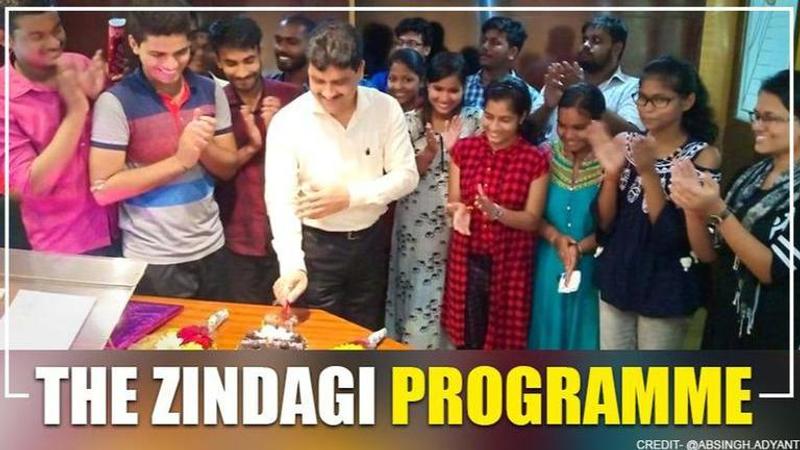Published 09:49 IST, September 12th 2019
'Super 30' for Medical aspirants: All about the Zindagi programme
An initiative called "Zindagi", by Ajay Singh, is providing free coaching, lodging, and food to underprivileged children to help them qualify medical exam NEET

A noble initiative in Odisha akin to the famed Super 30 experiment of the mathematician Anand Kumar, is giving wings to wards of humble vegetable sellers, fishermen, and marginal farmers, who crack NEET exam to qualify for admission in medical colleges.
'Super 30' for Medical Aspirants
The benign effort has been made by a non-governmental organisation through the project "Zindagi". The man behind the success story is Ajay Bahadur Singh, who had to abandon his medical studies to sell tea and sharbat (squash) to sustain his family who were undergoing financial hardship. The Zindagi programme launched in the year 2016 in Odisha's capital Bhubaneswar has at present 19 meritorious students, both girls and boys, hailing from economically poor families.
Under the project, the talented students of the poor financial background selected through a statewide screening test, are provided free food, lodging, and teaching to help them become doctors.
READ I Hrithik Roshan's 'Super 30' tax-free in 8 states as it continues to draw footfalls at the box office
Astounding Results
Fourteen students of its students who had cracked NEET in 2018, 12 out of which acquired admission in government medical colleges of Odisha, were hosted by Chief Minister Naveen Patnaik in July last to commemorate their achievements.
A PTI reporter, who saw a class in progress at the foundation earlier this week, interacted with pupils, some wards of vegetable sellers, daily labourers, fishermen, and marginal farmers. Even in their dreams, these students had not thought of becoming medicos, as it demanded expensive study materials and coaching.
Wings to Fly
Giving wings to their dream are Kshirodini Saho, daughter of a marginal farmer of Angul district, Rekha Rani Bagh, daughter of a labourer of Koraput, Smruti Ranjan Senapati, son of a truck driver of Bhadrak district, Satyajit Sahoo, son of a vegetable seller of Panagarh, and Manjit Bala whose father catches fish in East Malkangiri to support the family.
But, the financial hardship has been no deterrent to the confidence of the children to do something big.
"When a tea seller can become a Prime Minister (Narendra Modi) why can not we become a doctor?" said Subhalaxmi Sahoo, daughter of a small farmer of the Khurda district.
Their teachers -- Mukul Kumar, Manas Kumar Nayak, and Durga Prasad -- said that for them its a situation of "do or die", either crack the medical exams or return to a life of misery.
"We dedicate initial 15-20 classes to prepare them mentally that they have abundant talent to crack National Eligibility cum Entrance Test (NEET) competing with students of expensive schools and attending coaching classes in reputed names in the field," Mukul Kumar, who teaches Botany, told PTI.
"All of them have a strong desire to achieve their goals," said Zoology teacher Durga Prasad.
Zahid Akhtar, the coordinator of Zindagi programme, said the boys and girls are hosted in separate hostels run by the group, where they get simple but nutritious food free of cost. Senior coordinator of the Zindagi foundation -- Shiven Singh Choudhry - said it's a one year programme which starts from the first week of July after completing the admission formalities.
The economic condition is a must criterion for selection of students as the aim of the project is to help wards of poor families do big in the world, Choudhry said.
Enlightened from Personal Experiences
The founder of the Zindagi Foundation, Ajay Bahadur Singh, said he is doing all this to fulfil his own shattered dream of becoming a doctor. Singh had to abandon his studies due to financial problems gripping his family after his father developed a kidney problem in 1990 when he was preparing for his medical exams.
"In order to meet medical bills of father and meet the needs of the family, we sold the jewelleries and house in Deogarh (now in Jharkhand)," Singh said.
"But, it was not enough as all the money ended in kidney transplant and meeting other medical expenses of father. With no help coming from any quarter, I started selling tea and Sharbat at shravani mela in temple town of Baba Baidyanath, which is among the 12 'jyotirlinga in the country" Singh, in 40s, said in a choked voice.
After the death of his father, Singh said he moved to Patna and started giving private tuition to students to run the family and also keep alive his love for education. "The private tuitions ran successfully and soon I got an opportunity to start a school up to Plus two level in Odisha. And with the earnings, I launched Zindagi foundation to help poor children like me achieve big which I could not do," he said.
"The motivation to start the Zindagi programme came from a personal experience when I encountered a girl selling rose bead outside world famous Lord Jagannath temple at Puri, who made a fervent request to buy her stuff so that she can finance her studies," he said.
Singh said Super 30 founding mathematician Anand Kumar has been his inspiration. He said he has not fixed the strength of his classroom at the Zindagi foundation.
"It all depends how many genuine students of deprived section I get and resource to finance their fooding, lodging and educational needs. Tomorrow if my earning increases from school and coaching institutes I will definitely increase the numbers," he added.
The Zindagi foundation chief said though there was no immediate plan to expand his programme in other parts of the Odisha or start a similar school in other states. Although he stated, "I wish to launch such an experiment in Bihar and Jharkhand, full of such students whose talent goes waste for want of economic resources of their families."
Updated 13:06 IST, September 12th 2019




